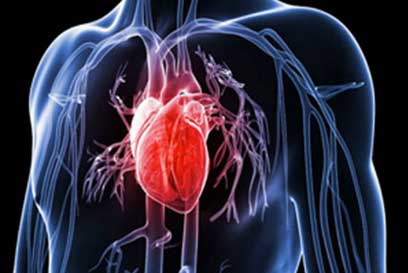The obesity epidemic has reached its peak and it is being followed by an increase in a lot of lifestyle diseases. Obesity and Heart Disease are more closely related than we realize. Cardiovascular diseases (CVDs), especially coronary heart disease (CHD), have assumed epidemic proportions worldwide too. Globally, CVD led to 17.5 million deaths in 2017. More than 75% of these deaths occurred in developing countries. In contrast to developed countries, where mortality from CHD is rapidly declining, it is increasing in developing countries. The absolute death rate due to heart disease shall increase in India from 2 million/year in 2010 and 2.6 million by the year 2020, an increase of 30%.
In the simplest clinical terms, obesity is defined as having an abnormal or excessive amount of body fat. Some stipulate that obesity occurs when the amount of body fat impairs the individual’s health or threatens to shorten his or her life expectancy. Many physicians and other healthcare experts use the body mass index (BMI) scale to determine obesity. According to this system, a person is considered to be obese if the BMI is 30 or above. A BMI of 25 to 29.9 is considered overweight, and some BMI scales have the additional category of “morbid obesity” for individuals who score 40 or above.
Obesity has been associated with a wide range of diseases, disorders, and other health concerns. For example, obese individuals are at an increased risk of developing hypertension (high blood pressure), heart disease, stroke, type 2 diabetes, osteoarthritis, and certain types of cancer.
How does Obesity increase risk of Heart Disease?
As per WHO (World Health Organization) guidelines; health risk increases above waist circumference of 90cm (36 inches) in men & 80cm (32 inches) in women.
- A large waist means more visceral fat. It increases bad cholesterol levels in the blood. This cholesterol tends to clog the arteries supplying blood to the heart causing heart attack.
- Big belly puts lot of pressure on our breathing muscles & heart during sleep. This causes lot of snoring (Obstructive Sleep Apnoea) which increases the blood pressure & affects our heart adversely.
- In obese people the heart is required to work harder to pump blood throughout the body. Each kilogram of fat requires approximately 3-3.5 km of extra blood vessels to supply nutrients and oxygen

Watching your weight is like watching your heart. And to keep your weight in control, here are a few tips:
- A) Eat Healthy
- Avoid fried fast food and processed foods containing vegetable shortening.
- Choose a variety of oils (extra virgin olive oil, canola, peanut) and foods containing natural fats (nuts, seeds, avocado, olives, soy, fish).
- Switch to low-fat or non-fat dairy products.
- Increase the amount and variety of plant foods consumed – eat more unrefined vegetables, fruits, and wholegrain cereals. Reduce intake of refined sources of carbohydrates with higher glycaemic indices.
- Include legumes (like baked beans, soybeans, lentils and tofu) in your diet.
- If you drink alcohol, have no more than two drinks per day.
- Trim all visible fat from meat.
- Remove poultry skin and eat only the meat.
Avoid added salt at the table and cooking and salty foods.
- B) Exercise
- Exercise is vital to reduce your risk of heart disease. Walking at least 30 minutes each day at a vigorous pace (at least 4 km per hour) reduces heart disease risk by 30 percent.
- C) Where to find help
- Sometimes you need help regardless of the diet and fitness regime you follow. If you need immediate results the healthy way then professional help is available at Define Aesthetics who have been Pune’s weight loss partner for 8 years with more than 3700 success stories. Define uses a breakthrough non-surgical technology called ION Magnum in combination with other proven technologies for weight loss treatments under doctor supervision. Here, delivering results have been a habit.
It is safe to conclude that keeping your weight in control is keeping your heart condition in check. A healthy diet, exercise, and professional help keep obesity in check and lead to an overall healthy lifestyle.
